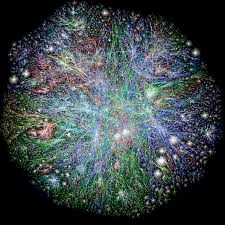“Web Science” is probably an unfamiliar phrase for some. Obscure even. As someone once remarked, the only problem with the phrase “Web Sciences” is the word “web”, the word “science” and the way the two words are used together.
Which is a bit tricky, because the conversation which those two words signify is becoming more urgent and more central to the future of the planet and the way we live a life in common worth living, not just for some, but for all.
It’s a big call.
This short paper (see here for the full version), drawing on some “brave conversations” held in Canberra over two days in early April 2017, will sketch not only why the call is big, but why, broadly, it is right.
In simple terms
“Web Science” is a label for a conversation – research, debate, exploration – about the web (and technology more broadly), society, people and nature to get the best out of each, to improve their interaction and to lift the prospects of their combined impact on opportunity, inclusion and sustainability.
Over the past decade or so, a small but growing group of leaders, thinkers and practitioners in technology, computer science, sociology, political science, anthropology, business, the public sector and civil society have been circling a big challenge.
“For the Web to succeed, we need to understand its societal challenges including increased crime, the impact of social platforms and socio-economic discrimination, and we must work towards fairness, social inclusion, and open governance.” http://www.webscience.org/manifesto/
From the start, a “manifesto” of a few simple but important propositions has defined the scope and nature of the conversations that Web Science needed to have:
1. Web Science must be the genuine intersection of discipline; i.e. it cannot be allowed to be a sociology or a computer science of the web;
2. Web Science must look both ways to see how the web is made by humans and how humans are made by the web;
3. Web Science must follow all the actors (individual, groups and technologies) and trace the networks implicated in the web in the broadest sense and understand the effects of these networks;
4. Web Science must move beyond narrow epistemologies and methodologies to enable a science which can examine and explain both micro and macro phenomena;
5. Web Science must be a critical discipline – if it is to speak to the desire for the web to be pro-human – it must develop theoretical thinking and push towards critical, political social theory, to critique the direction of travel, to challenge the web and society. http://journal.webscience.org/297/2/manifestoACM.pdf
As the pace of technology change and churn quickens, the intensity and urgency of the discussion about what it means for the world and for all of us as people and organisations and communities are both accelerating as well.
Ultimately, that discussion is about some equally big challenges of power, control, authority and accountability.
How the big decisions are being made about technology’s future, the impact new technology has on the choices and chances of people as they interact with new tools and platforms, how the conversations from which these choices flow are set up and who gets to contribute to them…these are all being contested pretty much every day.


A nice summation Martin. I saw it differently, but you have captured the majorities views I believe.
I have to admit, I liked the idea that the web should collapse, and a new and better web rise form the ashes.